Life
Sign up for our newsletter
We summarize the week's scientific breakthroughs every Thursday.
-
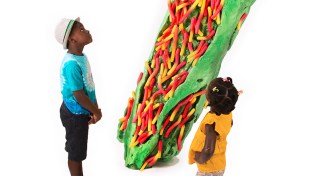 Microbes
MicrobesGet to know your microbes at ‘The Secret World Inside You’
The American Museum of Natural History’s newest exhibit rehabilitates bacteria’s bad reputation and introduces visitors to the microbiome.
By Devin Powell -
 Animals
AnimalsSharks follow their noses home
Leopard sharks draw on scents to navigate back to shore, study suggests.
-
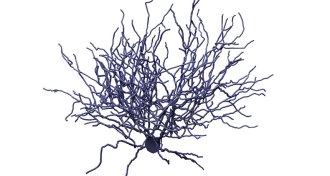
-
 Health & Medicine
Health & MedicineHigh-intensity interval training has great gains — and pain
Intense spurts of activity followed by brief rest can improve heart health, blood glucose and muscle endurance. But some question if the pain of HIIT workouts will impede the popularity.
-
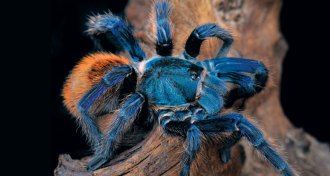 Animals
AnimalsWhen tarantulas grow blue hair
Azure coloring is surprisingly common in the spiders, though they themselves are colorblind.
By Susan Milius -
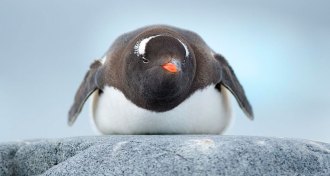 Physics
PhysicsAircraft industry could take tips from penguins
Tiny grooves and an oily sheath prevent water droplets from freezing on the feathers of some penguins.
By Andrew Grant -
 Science & Society
Science & SocietyClimate, new physics and Jupiter on the horizon for 2016
The first issue of the new year features stories about what will, editor in chief Eva Emerson predicts, hold on as scientific newsmakers during 2016.
By Eva Emerson -
 Climate
ClimateArctic passageways let species mingle
People aren’t the only animals likely to use passages that open up as the Arctic melts.
By Susan Milius -
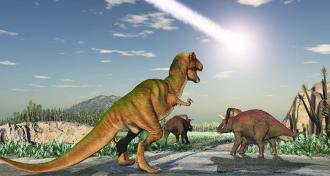 Particle Physics
Particle PhysicsDark matter helped destroy the dinosaurs, physicist posits
In ‘Dark Matter and the Dinosaurs,’ Lisa Randall finds connections between particle physics, cosmology, geology and paleontology.
By Andrew Grant -
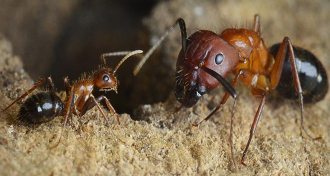 Animals
AnimalsAnts’ size and profession controlled by chemical tags on DNA
Epigenetic marks determine whether female Florida carpenter ants are soldiers or foragers.
-
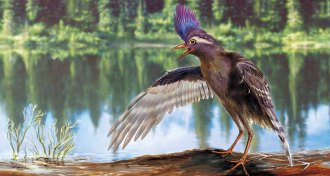 Paleontology
Paleontology12 amazing fossil finds of 2015
From an ancient sponge ancestor to the Carolina Butcher, scientists learned a lot about life on Earth this year.
By Meghan Rosen -
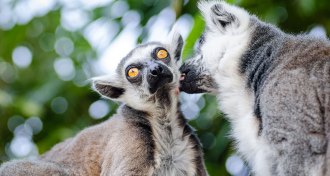 Animals
AnimalsLemurs chat only with their best friends
Ring-tailed lemurs maintain friendships built with grooming by calling to each other, a new study finds.